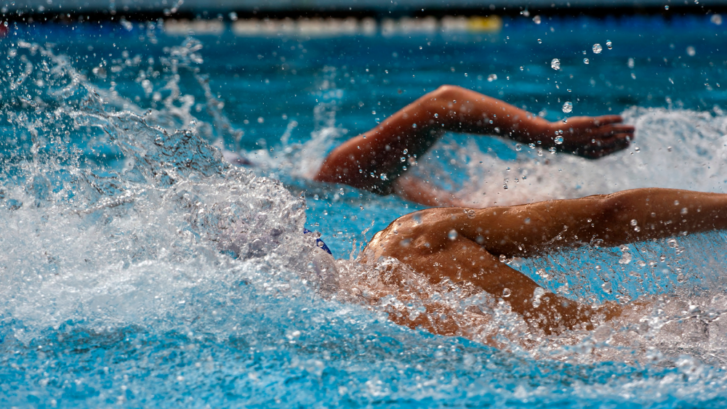The 4 Most Common Swimming Injuries and How to Prevent Them
While swimming is a great form of exercise, it can also be dangerous if proper safety precautions are not taken. Injuries can occur from overuse or from improper technique.
This post will explore the most common swimming injuries and how to prevent them.
Swimming, like all forms of exercise, requires at least some form of stretching to ‘warm’ up the muscles, both to prevent injury and relieve muscle tension. Many swimming injuries are caused by a lack of stretching before swimming, or by poor swimming form, which can be the result of repetitive motions.
Swimming is an excellent form of exercise because it not only helps your body recover from previous injuries, but it is also a low-impact sport that decreases your chances of developing further injuries to your knees and legs, strengthens your muscles, and is a form of active stretching.
Neck
For swimmers, the chances of neck injuries increase with age. However, they can also be a result of improper technique from breathing. When swimming, it’s important to keep your neck straight while you breathe in between strokes. This will help to avoid straining your muscles. Focus on keeping the neck straight with the body while breathing during the rotation of the swimming stroke to prevent injury.
Shoulders
Swimmer’s shoulder injuries are probably one of the most common due to the obvious mechanics of how swimming works. Oftentimes, sports medicine and orthopedic doctors see active swimmers with rotator cuff tears, shoulder strains, bicep tendonitis, rotator cuff impingements, and other injuries.
These kinds of injuries are often a result of needing to perfect your stroke. Practicing your form and getting the mechanics of your body alignment during motion is one way to do that. One tip would be to practice aligning your entire hand to come into contact with the water all at once, and not just thumb first.
Knees
Swimmers who favor the breaststroke tend to experience more knee injuries on average than swimmers who favor other strokes. The movement of the knees during the motion and improper technique are the usual culprits, but it can occur from overuse during other strokes, as well.
Hip injuries may also occur as the result of overuse or improper technique during the breaststroke, which leads to inflammation.
Lower back
Swimming is often recommended to people with back pain because it is an aerobic exercise. However, swimming can also cause back injuries for some people.
This is because of the hyperextension that can result from many of the different swimming strokes. Swimming provides more health benefits than not swimming. Active rest days that focus on core strength would be the most beneficial for these kinds of injuries to compensate for the strain on your back.
Treatment for common swimming injuries
- The tried and true method of RICE – rest, ice, compression, and elevation.
- Anti-inflammatories for pain, as prescribed by a doctor or over-the-counter.
- Active rest, such yoga, cycling, and core strengthening exercises to put less strain on injured muscles and joints and build strength in underdeveloped areas of the body.
- Switching up your routine and using different strokes to revitalize different muscle areas.
- Stretching and conditioning exercises out of the pool to build endurance and strength.
- Physical therapy and massage.
Some more severe injuries may require surgery.
Examples of these types of injuries are rotator cuff tears. However, most injuries can be treated using the conservative methods listed above. Always speak with a trusted medical professional, such as a coach, physical therapist, or doctor before making any decisions about your health.
Swimming is a great exercise for overall health and fitness, but it’s important to take precautions against injuries.
By following a stretching routine, swimming with good mechanics, and conditioning your body for swimming, you can reduce your risk of injury. If you experience any pain that lasts more than a couple days after swimming, be sure to make an appointment with our specialists here at Healthpointe, so we can help get you back in the pool as soon as possible.
How Healthpointe Can Help:
Healthpointe offers pain management treatment to any patients who we believe can benefit from it. Our doctors evaluate patients and create treatment plans based on what is best for the patient; with specialties that include sports medicine.
You can schedule an appointment with us by filling out this form on our website. We now offer texting services! Give us a call or text to schedule an appointment today: (714) 367-5390.
Our physical locations are in Anaheim, Colton, Corona, Garden Grove, Irwindale, La Mirada, Long Beach, Los Angeles, Ontario, Perris, and Temecula.


